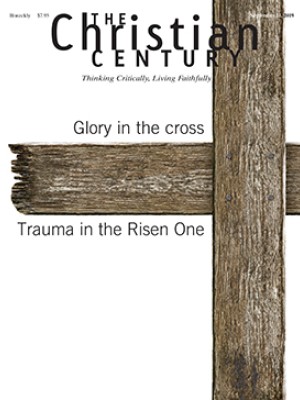Anti-Christian attacks in Nigeria threaten precarious balance of faiths
In the first weekend of August, Chidinma Ibeleji, a deaconess in the Redeemed Christian Church of God in Nigeria, was kidnapped along with four others on her way to her Pentecostal denomination’s annual convention in Lagos.
All five were rescued within days, but not all stories in this West African country end so well. The week before, Paul Offu, a Catholic priest, was shot dead in the south of the country. Catholic priests called for government action in response to his slaying and that of another priest, Clement Ugwu, who was kidnapped in March and found dead days later. Both deaths have been blamed on Muslim Fulani herdsmen.
The attacks have put Nigeria’s president, Muhammadu Buhari, in a tight spot as he tries to manage a country nearly evenly split between Christians and Muslims. Many considered his reelection in February to bode well for all Nigerians, but the uptick in anti-Christian violence has opened Buhari, a Fulani Muslim himself, to increasing criticism. In a public letter, former president Olusegun Obasanjo said he now fears “spontaneous or planned reprisal attacks against Fulani which may inadvertently or advertently mushroom into pogrom or Rwanda-type genocide that we did not believe could happen and yet it happened.”
Read our latest issue or browse back issues.
In Nigeria, religion stands at the intersection of a divisive colonial history and the current crisis caused by drought and land scarcity. It is impossible to discuss nearly any topic in Nigeria without also discussing faith.
The most immediate cause of strife is a government proposal to move Fulani herdsmen from their historic areas in the north of the country into the south, which is occupied by Igbo Christians and Yoruba, a group that includes both Christians and traditional religious practitioners. The program, the Rural Grazing Area settlement program, or RUGA, was designed to help herdsmen escape depleted herding areas and drought.
But few are happy with RUGA, and though it has been postponed for now, the political battle over it has continued. With the recent killings and kidnappings, the rhetoric against Fulani herdsmen has increased, with clerics and other leaders blaming them for every act of robbery, kidnapping, or murder that occurs.
Added to all of this is the ongoing threat of Boko Haram, whose 2014 kidnapping of 276 female students from Chibok is still unresolved, and which continues to attack Christian churches in the north.
It is not difficult then to see the clergy attacks as an issue not only for religious leaders but for Nigeria’s stability as a nation. Religious leaders have been supportive of the government, but the protests by Catholic priests over the killings showed how tensions between religious groups are leading them to question the authorities. Gabriel Ojeleke Abegunrin, archbishop of the Ibadan province of the Catholic Church, said: “Time is running out for Nigeria if security is not improved. We call on governments at all levels, traditional and other civil authorities to please save the country.”
E. A. Adeboye, leader of the Redeemed Christian Church of God, one of the country’s largest denominations, has been careful not to criticize Buhari since the vice president, Yemi Osinbajo, is also a pastor in the RCCG. In 2010, during the Obasanjo presidency, Adeboye condemned similar violence and called for a million-man protest against the declining security of the country.
Adeboye is feeling pressure to raise his voice again. Last month, a group of Nigerian celebrities protested at Redemption Camp, the RCCG’s city-sized main campus.
Conservative religious groups in America have taken up the cause of persecuted and murdered Christians in Nigeria. David Curry, leader of the group Open Doors, says that 3,731 Christians were killed in Nigeria in the past year. The Trump administration awarded Imam Abubakar Abullahi the 2019 Religious Freedom Award for hiding Christians in his home and mosque during an attack in central Nigeria.
It remains to be seen if Buhari can stem the crisis. His position as a Fulani and a Muslim, with a Pentecostal vice president, makes for a government intrinsically tied to religious groups in ways that make it easy for detractors to claim favoritism for one group or another in what is a contentious, life-threatening situation for many.
For Buhari, holding all of these religious groups together in an increasingly dangerous situation on the roads and in worship centers will be the test of his second term, and a grave test for a nation trying to balance its religious diversity. —Religion News Service






